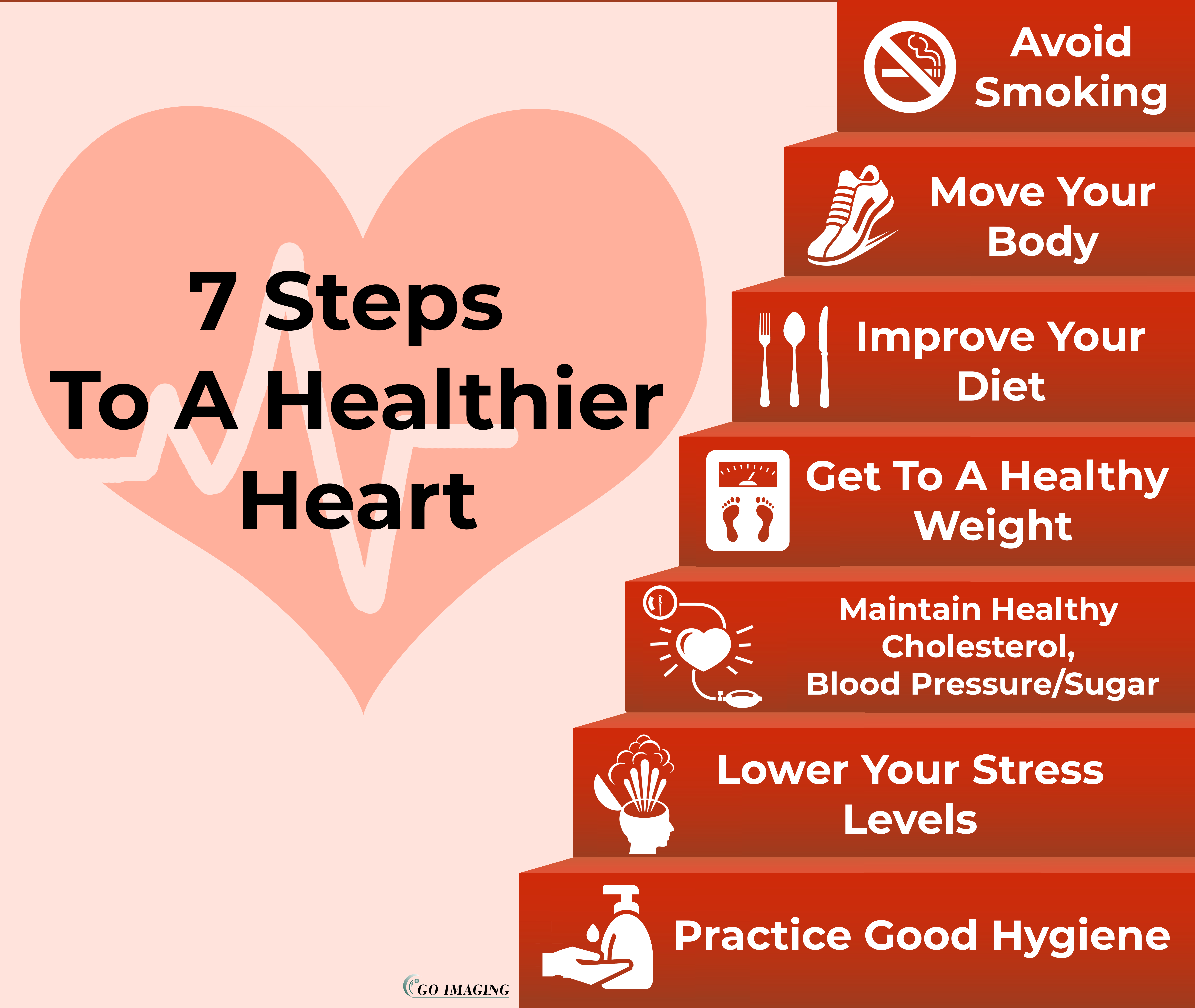7 Steps To A Healthier Heart
1. Avoid Smoking
If you are already living a smoke-free life, you’re ahead of the game. Well done! On the other hand, if you are a smoker, you’re putting your heart in danger. Most people associate the lungs with complications from smoking, but the reality is smoking can cause devastating damage to your heart as well. In fact, as the National Heart, Lung, and Blood Institute explains, “Smoking harms nearly every organ in the body, including the heart, blood vessels, lungs, eyes, mouth, reproductive organs, bones, bladder, and digestive organs.”
Risk factors from smoking include heart disease, chest pains, heart attack, arrhythmias, high blood pressure, damaged heart tissue, and heart failure. To make matters worse, you don’t even have to be the one smoking to be adversely affected. Secondhand smoke can significantly raise the risk of these and other heart-related issues for children and teens, and especially for children with pre-existing conditions such as respiratory distress syndrome (most common in newborns) or asthma.
2. Move Your Body
Physically active people enjoy healthier hearts more than inactive people do. Not only does it help you control your cholesterol and blood sugar, aerobic exercise improves your circulation. The Centers for Disease Control and Prevention (CDC) recommends 150 minutes of aerobic activity and two days of strength training each week for adults.
3. Improve Your Diet
What you eat and drink can have a direct impact on your heart health. A diet rich in fruits and vegetables, lean meats, whole grains, and healthy fats can reduce your risk of a number of heart issues.
When it comes to diet you should also moderate your alcohol and caffeine intake. As Harvard Medical School says, “High doses of caffeine can temporarily raise your heart rate and blood pressure, which may pose dangers for some people with heart disease.”
4. Get to a Healthy Weight
Starting today you can begin moving your body more, and improve your diet. Continuing to do so will eventually get your body to a healthy weight which can reduce your risk of heart disease.
5. Maintain Healthy Cholesterol, Blood Pressure, and Blood Sugar
When your levels are not managed properly, your body is at higher risk for heart disease, stroke, heart attack, and a whole host of other health issues. Your blood pressure should be less than 120/80 mm Hg to be considered normal according to the AHA. The first number is your systolic blood pressure and “it indicates how much pressure your blood is exerting against your artery walls when the heart beats.” The second number is your diastolic blood pressure, and it “indicates how much pressure your blood is exerting against your artery walls while the heart is resting between beats.”
The CDC says that your target blood sugar levels should be 80 to 130 mg/dl before a meal, and less than 180 mg/dl two hours after the start of the meal. Finally, your total cholesterol should be less than 170mg/dL to be at a healthy level according to the National Library of Medicine.
6. Lower Your Stress Levels
“stress can increase your risk for heart disease.” They went onto explain that “Your body’s response to stress is supposed to protect you. But, if it’s constant, it can harm you.”
When you are overly stressed, the hormone cortisol continues to be released. As the levels of cortisol increase, it can increase the common risk factors for heart disease such as increased blood pressure, blood sugar, and cholesterol levels.
Exercise is considered one of the best ways to lower stress levels. However, meditation, journaling, and getting enough rest are also helpful ways to diminish stress.
7. Practice Good Hygiene
While this step may seem out of place in an article about heart health, the reality is that when we don’t wash our hands and keep our bodies clean, we risk contracting infections such as the flu or pneumonia which can be very hard on your heart. Believe it or not, brushing and flossing can also have an impact on your heart health. According to the AHA, poor oral hygiene has been linked to higher risks for cardiovascular disease and heart valve infections as well. Bottom line – brush your teeth and wash your hands to increase your chances of keeping your heart healthy.
International Conference on Cardiology and Cardiovascular Medicine
Website: https://cardiology-conferences.pencis.com/
#Hypertrophy
#cardiology
#Cardiovascular
#Coronaryarterydisease
#Pacemaker
#arterial
#Cardio
#heartsurgery
#ECG
#Medicine
#Heart failure


.jpeg)

.webp)
No comments:
Post a Comment